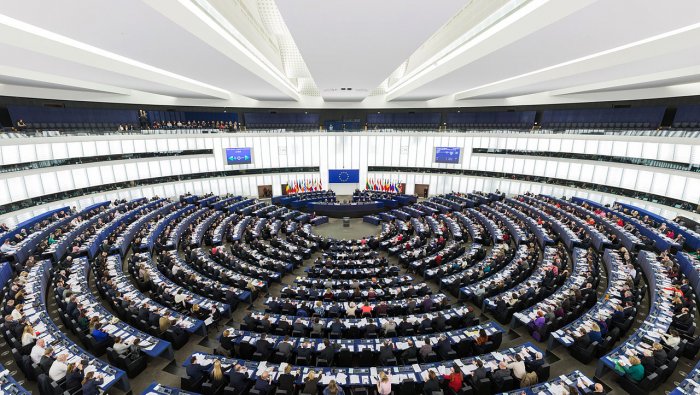MEPs call to trigger Article 7 against Hungary

Members of the European Parliament see a “serious deterioration of the rule of law and democracy” in Hungary, which they believe justifies the triggering of a procedure which may result in sanctions on the country, according to a resolution MEPs adopted today, by 393 votes to 221 with 64 abstentions, according to a press statement issued by the EP.
Following the plenary debate, MEPs said that Hungary’s current fundamental rights situation justifies launching the formal procedure to determine whether there is a “clear risk of a serious breach” of EU values by a Member State, according to the press statement.
The resolution calls for the launch of Article 7(1), whereby MEPs instruct the Committee on Civil Liberties, Justice and Home Affairs to draw up a formal resolution for a plenary vote.
It also calls on the Hungarian government to repeal laws tightening rules against asylum-seekers and non-governmental organizations (NGOs), and to reach an agreement with the U.S. authorities making it possible for the Central European University (CEU) to remain in Budapest as a free institution.
In addition, the resolution calls on the European Commission to strictly monitor the use of EU funds by the Hungarian government, the press statement adds.
“Recent developments in Hungary have led to a serious deterioration in the rule of law, democracy and fundamental rights which is testing the EU’s ability to defend its founding values,” MEPs said. They also repeated the need for a process to safeguard the EU’s core values, supported in the resolution of October 25, 2016, according to the press release.
Steps toward sanctions
Article 7 of the Treaty on European Union provides a mechanism to enforce EU values.
Under Article 7(1), the Council may determine that there is a clear risk of a serious breach of EU values by a Member State. This is intended to prevent an actual breach by addressing specific recommendations to the Member State in question. This can be triggered by one third of Member States, by Parliament or by the Commission. The Council has to adopt a decision by a four-fifths majority after having received Parliamentʼs consent, which also requires a two-thirds majority of the votes cast and an absolute majority of MEPs.
The next phase is Article 7(2), by which an actual breach of EU values can be determined by the Council on a proposal by a third of Member States or the Commission. The Council needs to decide by unanimity and the Parliament needs to give its consent.
Article 7(3) launches sanctions, such as the suspension of voting rights in the Council.
A historic first?
According to the EUobserver, an independent online newspaper reporting on the European Union, the European Parliamentʼs call to launch proceedings against what it terms Hungary’s illiberal rule would be “a historic first” for the EU.
The online news source notes that the Article 7 procedure is designed to rein in member states that violate EU values and could lead to the suspension of their EU Council voting rights. It was created after the far-right Freedom Party joined Austria’s government in the early 2000s, but has never been used.
At the same time, the EUobserver notes that sanctions under Article 7 would only kick in if all EU countries agreed, but Poland, which is also under scrutiny by the European Commission, has already said it would veto any action against Prime Minister Viktor Orbán’s government.
SUPPORT THE BUDAPEST BUSINESS JOURNAL
Producing journalism that is worthy of the name is a costly business. For 27 years, the publishers, editors and reporters of the Budapest Business Journal have striven to bring you business news that works, information that you can trust, that is factual, accurate and presented without fear or favor.
Newspaper organizations across the globe have struggled to find a business model that allows them to continue to excel, without compromising their ability to perform. Most recently, some have experimented with the idea of involving their most important stakeholders, their readers.
We would like to offer that same opportunity to our readers. We would like to invite you to help us deliver the quality business journalism you require. Hit our Support the BBJ button and you can choose the how much and how often you send us your contributions.







